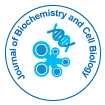எங்கள் குழு ஒவ்வொரு ஆண்டும் அமெரிக்கா, ஐரோப்பா மற்றும் ஆசியா முழுவதும் 1000 அறிவியல் சங்கங்களின் ஆதரவுடன் 3000+ உலகளாவிய மாநாட்டுத் தொடர் நிகழ்வுகளை ஏற்பாடு செய்து 700+ திறந்த அணுகல் இதழ்களை வெளியிடுகிறது, இதில் 50000 க்கும் மேற்பட்ட தலைசிறந்த ஆளுமைகள், புகழ்பெற்ற விஞ்ஞானிகள் ஆசிரியர் குழு உறுப்பினர்களாக உள்ளனர்.
அதிக வாசகர்கள் மற்றும் மேற்கோள்களைப் பெறும் திறந்த அணுகல் இதழ்கள்
700 இதழ்கள் மற்றும் 15,000,000 வாசகர்கள் ஒவ்வொரு பத்திரிகையும் 25,000+ வாசகர்களைப் பெறுகிறது
குறியிடப்பட்டது
- பப்ளான்கள்
- ICMJE
பயனுள்ள இணைப்புகள்
அணுகல் இதழ்களைத் திறக்கவும்
இந்தப் பக்கத்தைப் பகிரவும்
சுருக்கம்
Emerging Stem Cell Therapies in Mast Cell Biology
Bashit K
The genesis and development of all higher creatures depend on stem cells, which are the basic building elements of life. The discovery of adult stem cells sparked a therapeutic and regenerative medicine revolution that is still continuing strong and inspired the development of novel treatments for diseases that were once considered incurable. The first instance of a successful stem cell therapy was hematopoietic stem cell transplantation, which is now often used to treat multiple myeloma and adult T-cell leukemia-lymphoma among other illnesses. The autologous transplantation of mesenchymal stem cells is used more frequently to promote the repair of mesenchymal tissue and other tissues, such as the lung and heart, and to treat a variety of illnesses, including diabetes, multiple sclerosis, and stroke. The therapeutic potential of additional adult stem cells, including those from the testicles, breast, intestinal, and inner ear, is now gaining attention. It has become clearer how the underlying epigenetic mechanisms of pluripotency and carcinogenesis work thanks to the discovery of induced pluripotent stem cells. It will be possible to create safer and more precise treatments by doing in-depth research on these epigenetic variations and the physiological changes they cause. It's been known for a long time that mast cells play a crucial and direct role in allergy and inflammatory reactions. These cells influence systemic and local allergic reactions, such as allergic rhinitis and anaphylaxis, in allergic disorders. In addition, several chronic inflammatory disorders are connected to mast cell mediators. Mast cells have a variety of healthy tasks, in addition to their roles in pathological circumstances. These include innate immunity, participation in host defence mechanisms against parasites, immune system immunomodulation, tissue healing, and angiogenesis. Mast cell biology is a field that still needs considerable research despite its growing importance in both physiological and pathological settings. This study provides evidence for the modulation of numerous biological processes in mast cells, including degranulation and endocytosis, by lipid rafts or raft components.
பாடத்தின் அடிப்படையில் இதழ்கள்
- இயற்பியல்
- இரசாயன பொறியியல்
- உணவு மற்றும் ஊட்டச்சத்து
- உயிர் மருத்துவ அறிவியல்
- உயிர்வேதியியல்
- கணிதம்
- கணினி அறிவியல்
- கால்நடை அறிவியல்
- சமூக & அரசியல் அறிவியல்
- சுற்றுச்சூழல் அறிவியல்
- தகவலியல்
- தாவர அறிவியல்
- நர்சிங் & ஹெல்த் கேர்
- நானோ தொழில்நுட்பம்
- நோயெதிர்ப்பு மற்றும் நுண்ணுயிரியல்
- புவியியல் மற்றும் பூமி அறிவியல்
- பொது அறிவியல்
- பொருள் அறிவியல்
- பொறியியல்
- மரபியல் & மூலக்கூறு உயிரியல்
- மருத்துவ அறிவியல்
- மருத்துவ அறிவியல்
- மருந்து அறிவியல்
- வணிக மேலாண்மை
- விவசாயம் மற்றும் மீன் வளர்ப்பு
- வேதியியல்
மருத்துவ & மருத்துவ இதழ்கள்
- அறுவை சிகிச்சை
- இதயவியல்
- இனப்பெருக்க மருத்துவம்
- இம்யூனாலஜி
- இரத்தவியல்
- உடல் சிகிச்சை மற்றும் மறுவாழ்வு
- எலும்பியல்
- கண் மருத்துவம்
- கண் மருத்துவம்
- காஸ்ட்ரோஎன்டாலஜி
- குழந்தை மருத்துவம்
- சிறுநீரகவியல்
- சுகாதாரம்
- தொற்று நோய்கள்
- தோல் மருத்துவம்
- நச்சுயியல்
- நரம்பியல்
- நர்சிங்
- நீரிழிவு மற்றும் உட்சுரப்பியல்
- நுண்ணுயிரியல்
- நுரையீரல் மருத்துவம்
- பல் மருத்துவம்
- மனநல மருத்துவம்
- மயக்கவியல்
- மரபியல்
- மருத்துவ ஆராய்ச்சி
- மருந்து
- மூலக்கூறு உயிரியல்

 English
English  Spanish
Spanish  Chinese
Chinese  Russian
Russian  German
German  French
French  Japanese
Japanese  Portuguese
Portuguese  Hindi
Hindi